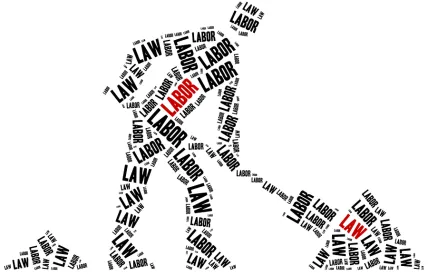The National Labor Relations Board (NLRB) has restored a unionized employer’s right to unilaterally discipline or discharge an employee prior to executing a first collective bargaining agreement.
800 River Road Operating Company, LLC d/b/a Care One at New Milford, 369 NLRB No. 109 (June 23, 2020). Before the execution of an initial labor contract and without giving the union prior notice or an opportunity to bargain, the employer had suspended three employees and discharged another pursuant to an existing disciplinary policy. The union filed an unfair labor practice charge alleging the discipline was an illegal unilateral change in violation of the National Labor Relations Act (NLRA), citing Total Security Management [364 NLRB No. 106 (2016)]. In Total Security Management, the Obama-era NLRB held that newly unionized employers must bargain before issuing “serious” discipline (e.g., suspensions and terminations) if a first labor contract has not been executed yet. Reversing Total Security Management and restoring its prior standard, the NLRB held an employer does not need to bargain over pre-contract discipline that is materially consistent with established policies or practices, even if the employer exercised discretion. The NLRB applied its decision retroactively “to all pending cases in whatever stage.” Applying the new standard to the case before it, the NLRB dismissed the union’s complaint allegations regarding the employer’s discipline.
Mandatory arbitration agreements may lawfully include limited confidentiality provisions such as one requiring confidentiality about the arbitration proceeding, the NLRB held.
California Commerce Club, Inc., 369 NLRB No. 106 (June 19, 2020). The employer maintained an arbitration agreement and mandatory dispute resolution process, including a confidentiality provision restricted to the “arbitration proceeding.” An employee filed an unfair labor practice charge alleging, among other things, that the confidentiality provision violated the NLRA. Finding the confidentiality provision lawful, the NLRB applied the U.S. Supreme Court’s decision in Epic Systems Corp. v. Lewis, et al., 138 S. Ct. 1612, 1632 (2018), which the NLRB noted “gave parties the discretion to design their own dispute-resolution procedures, tailored to the type of dispute, including that arbitral proceedings be kept confidential if the parties so choose.” The NLRB observed its decision should not be interpreted as meaning any confidentiality provision in an arbitration agreement automatically is lawful. The NLRB contrasted the provision at issue with one prohibiting “disclosing an arbitral award, or disseminating evidence or information obtained solely through participating as a party in an arbitral proceeding, ....”
Employers may lawfully restrict more employee solicitation based on the NLRB’s expanded definition of “solicitation.” Wynn Las Vegas, LLC, 369 NLRB No. 91 (May 29, 2020, reported in June).
The employer maintained a solicitation policy prohibiting all solicitation in “work areas” and during “the work time” of the initiating employee and the solicited employee. After finishing her shift, the employee approached an on-duty colleague stationed at the employer’s busiest customer traffic area and spoke for approximately three minutes about an upcoming union election. She did not ask the employee to sign a union authorization card. The employer disciplined the soliciting employee for violating the solicitation policy. In response, the employees filed unfair labor practice charges claiming the policy and discipline violated the NLRA. Reversing precedent defining “solicitation” to require the soliciting employee to ask the solicited employee to sign an authorization card, the NLRB broadened its definition of “solicitation” that lawfully may be restricted. The NLRB held it includes “the act of encouraging an employee to vote a particular way in a union election.” Applying its new definition and existing standards governing restrictions on solicitation, the NLRB found the employer’s policy and discipline was lawful, because it was limited to work areas during work time.
The NLRB created a new test for determining whether it has jurisdiction over the faculty at a religiously affiliated college. Bethany College, 369 NLRB No. 98 (June 10, 2020).
A former college employee filed an unfair labor practice charge alleging he was unlawfully denied tenure and terminated. An NLRB administrative law judge found the NLRB could assert jurisdiction over the claim, applying the standard in Pacific Lutheran University, 361 NLRB No. 157 (Dec. 16, 2014), the Obama-era NLRB decision that made it easier for the NLRB to assert jurisdiction over faculty at religiously affiliated colleges. Pacific Lutheran required the NLRB to consider, among other things, whether a college held out its faculty as furthering the college’s religious mission. In Bethany College, the NLRB reversed Pacific Lutheran. The NLRB found the Pacific Lutheran test impermissibly required “inquiry into the religious tenets of these institutions,” in violation of the First Amendment. Instead, the NLRB adopted the test followed by the U.S. Court of Appeals for the D.C. Circuit in University of Great Falls v. NLRB, 278 F.3d 1335 (2002), for determining whether to exercise jurisdiction over the faculty at such schools. Under that test, the NLRB will consider whether the institution: (a) holds itself out to the public as a religious institution; (b) is nonprofit; and (c) is religiously affiliated. If an entity meets the three criteria, it is not covered by the NLRA. Applying the Great Falls test, the NLRB found the three elements existed in this case, and therefore, the NLRB would not exercise jurisdiction over the former employee’s charge.
The NLRB General Counsel (GC) provided new instructions to NLRB staff on handling investigations involving the testimony of former supervisors or agents and involving audio recordings. Memorandum GC 20-08, Changes to Investigative Practices (June 17, 2020).
With respect to former supervisors or agents, NLRB staff often are required to inform the former supervisor’s or agent’s employer in advance of communicating with the former supervisor or agent about the substance of the matter. Regarding audio recordings, the Memorandum discusses different standards it will apply to: recordings Regions should not receive; recordings where Regions will alert charged parties that they possess relevant recordings and offer to play the recordings for the charged party; and recordings where, before receiving the recording, Regions will advise the individual offering the recording about their potential responsibility for breach of any law or work rule. Although the NLRB will continue collecting other kinds of evidence, including recordings made in violation of state wiretap laws or an employer’s policies, Regional staff must advise the potential whistleblower that they will offer to play the recording for charged parties “so that the person can make an informed choice as to whether or not to provide a recording.” The Memorandum instructs agency officials to allow parties to a case to be present in certain situations where a former supervisor or agent is testifying against that party. NLRB Regional offices “are to apprise the party or its representative in advance of communicating with the individual,” and afford the party “the opportunity to be present as an observer,” including in cases where the rules do not forbid contact with that former supervisor.
This article features contributions from Christopher M. Repole.









 />i
/>i

